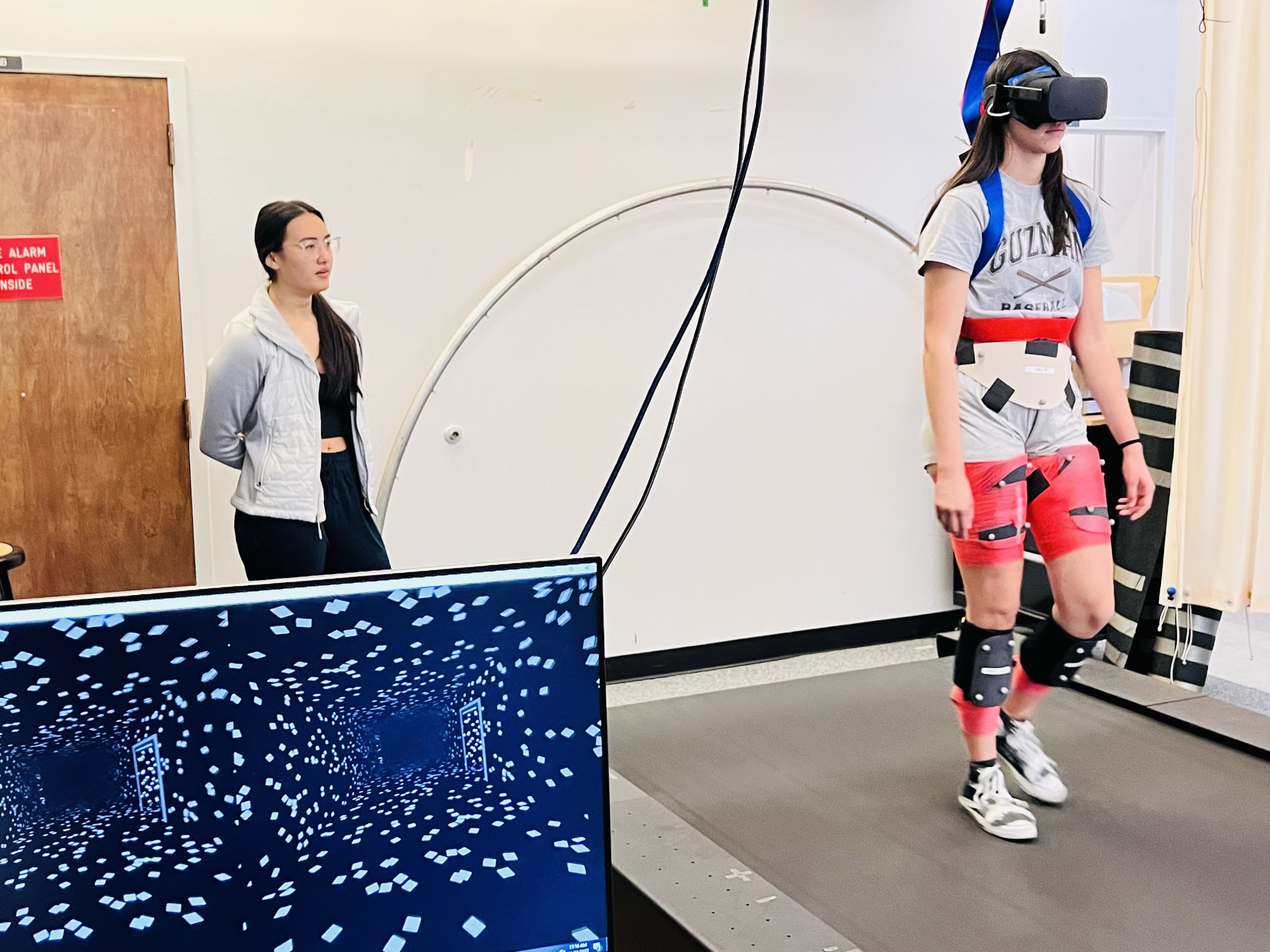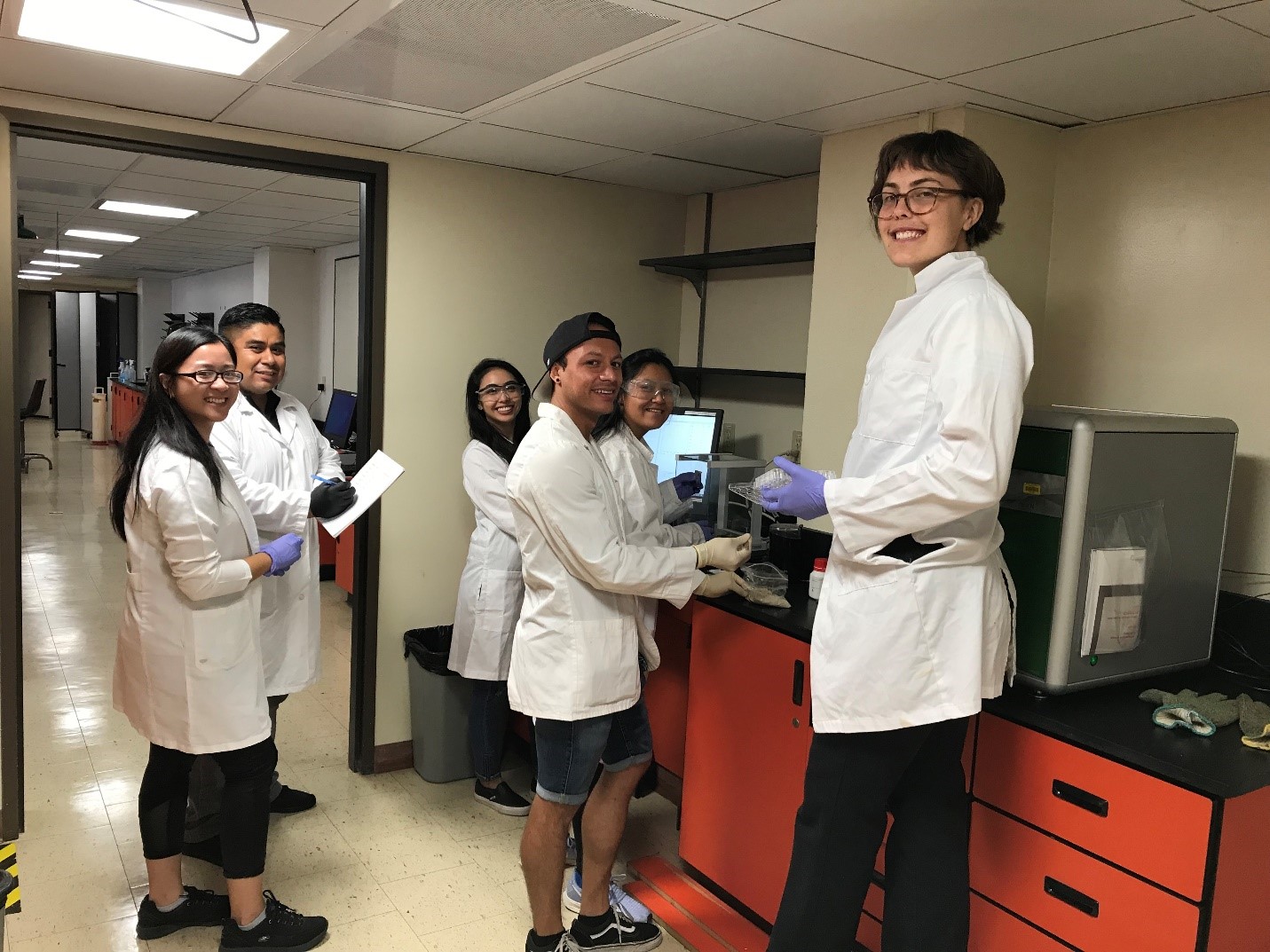Research Labs
ENS faculty members are at the forefront of research in their fields.
Research and teaching is conducted throughout the school’s modern research facilities.
Athletic Training Laboratory

Biomechanics Laboratory – ENS Annex 001A
A state-of-the-art research space for the acquisition and analysis of human movement. This lab is fully equipped with an 8-camera motion analysis system, dual-integrated force plates, running treadmill, force measuring treadmill, virtual reality system, wireless EMG, and ultrasound. Current projects in the lab include those focused on identifying the determinants of injury in running, sport and military populations, reducing falls in older adults, and the validation of various clinical assessment devices.
Clinical Nutrition and Physiological Sciences (CNaPS) Laboratories – ENS 101, 102
The CNaPS laboratory is designed for clinical and physiological testing of human research participants. Two large rooms allow for simultaneous testing using multiple types of equipment and furniture. The lab has a Bod Pod, Lode cycle ergometers, treadmill, several metabolic measurement systems, blood collection station, and multiple other physiological instruments.
Exercise Physiology Laboratories – ENS 255
The Kasch Laboratory, named after renowned Professor Emeritus Fred W. Kasch, contains several large treadmills and metabolic measurement systems, an environmental chamber, hydrostatic weighing tank, and an exercise biochemistry room. A focus of this lab is the acclimation of sweat glands to exercise in the heat. In addition, the Annex Exercise Physiology Laboratory also has a Bod Pod, several treadmills, Lode cycle ergometers, and several metabolic measurement systems including two portable wireless systems. This lab is shared with the nutrition faculty.
Food Access Research for Equity in Nutrition Lab (FARE Nutrition Lab)
Foods and Nutrition Laboratories– PSFA 401, 416, 424, 424A, 428, 471 and 147
- Dr. Surabhi Bhutani
- Dr. Mee Young Hong
- Dr. Shirin Hooshmand
- Dr. Mark Kern
- Dr. Jing Zhao
- Dr. Changqi Liu (see Dr. Liu’s lab page)
The Foods and Nutrition Laboratories allow the faculty and students to conduct foods and nutrition research that ranges from basic to applied sciences. Our laboratories accommodate a variety of experimental techniques to study molecular and physiological effects of nutritional variables in animal and human models. We have areas designed for molecular work, biochemistry, mineral analysis, (DXA) bone analysis, body composition, food analysis and sensory evaluation.
Physical Activity Research Lab – ENS 359
Dr. Jeni Green’s research focuses on assessing the impact of mind-body (e.g., yoga, mindfulness, meditation) and physical activity interventions on psycho-social outcomes, digital health, racial and ethnic minority health disparities, maternal health, behavior-change, community-based, and mixed-methods approaches.
Dr. Ashleigh Johnson’s research focuses on physical activity promotion, emphasizing community-based interventions and youth populations; identification of physical activity determinants; disparities around physical activity opportunities; school-based physical activity; rural populations; behavior-change interventions; and use of sports to promote physical activity among youth.
A multifunctional laboratory used for research activities, including physical activity measurement and data collection; data analysis; qualitative interviews; and intervention development, implementation, and evaluation. Student assistants also have opportunities to gain applied research experience in these activities under the mentorship of Drs. Green or Johnson.
Sensation in Motion Lab
Muscle Physiology and Repair Lab
Dr. Leonardo Nogueira’s research focuses on biochemistry, molecular biology, histology, and in vivo procedures in which mice are exposed to environmental pollutants. Experiments of mechanical ventilation and locomotor muscle damage can be performed on experimental animals. Dr. Nogueira and his students experimented with isolated muscles and single muscle fiber contractility, fatigue resistance, and intracellular fluorescence.
Contact Us
SDSU ENS

